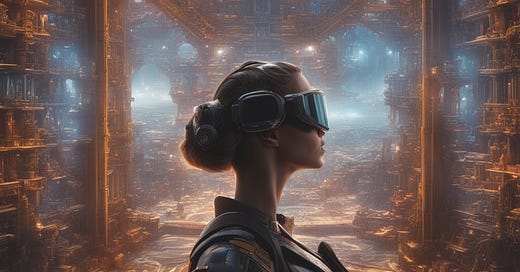Futuristic Technologies
The realms of artificial intelligence, virtual reality, and biotechnology beckon us toward a future that teems with possibilities beyond our wildest dreams.
The Ethical Horizon of Futuristic Technologies
In the grand tapestry of human progress, few threads are as vibrant and electrifying as the emergence of futuristic technologies. The realms of artificial intelligence, virtual reality, and biotechnology beckon us toward a future that teems with possibilities beyond our wildest dreams. Within their circuitry and code lie the keys to unlocking potentialities that promise to revolutionize not just our daily lives, but the very essence of what it means to be human.
Artificial Intelligence: Illuminating the Mind's Mirror
Artificial Intelligence, the Promethean flame of our era, unfurls a canvas of unparalleled potential. Imagine machines that learn, reason, and adapt, mirroring the very essence of human cognition. Imagine an AI doctor that can quickly analyze tons of medical information and make diagnoses as accurately as experienced doctors. What rights and responsibilities do we owe to beings that, though silicon and not sinew, possess cognitive capacities akin to our own? As AI ascends, questions of consciousness and personhood arise. Do we tread upon the precipice of a new form of life, or are we merely crafting sophisticated simulacra?
Virtual Reality: Forging Worlds Beyond Boundaries
Virtual Reality is like a magical doorway that allows us to step into entirely different worlds. When you put on a VR headset, it feels like you're in a place that doesn't actually exist. You can do things that would be impossible in the real world, like riding unicorns or walking on the surface of Mars. But, there's a concern that if people spend too much time in virtual worlds, they might become disconnected from the real world. It raises questions about whether people might start preferring digital experiences over real-life interactions.
Biotechnology: The Alchemy of the 21st Century
This is like a modern-day alchemy, where we have the power to shape and modify life at a genetic level. A powerful tool in this field is CRISPR, which allows us to edit genes. Imagine a world where we can prevent genetic diseases from being passed down through families, or even design specific traits in babies. However, this kind of power raises ethical dilemmas. We have to decide what limits, if any, should be placed on these genetic manipulations. It's important to consider the potential consequences of playing with the building blocks of life.
Mind Uploading: The Symphony of Silicon and Synapses
This concept is like imagining that our thoughts and memories could be turned into computer code. It's almost like transferring our consciousness into a digital form. This raises profound questions about what it means to be conscious. If we upload our minds, are we creating a true copy of ourselves, or is it something else entirely? This is a deep philosophical question that challenges our understanding of the nature of consciousness.
Conclusion: This essay concludes by emphasizing the importance of considering the ethical implications of these technologies. While they offer incredible potential, they also come with significant responsibilities. Striking the right balance between progress and ethics will be crucial as we navigate this new frontier. It's not just about shaping the future of technology, but also about defining the future of humanity itself.
<The following articles expand on all of the concepts described above.>
Keep reading with a 7-day free trial
Subscribe to StoryAngles to keep reading this post and get 7 days of free access to the full post archives.





